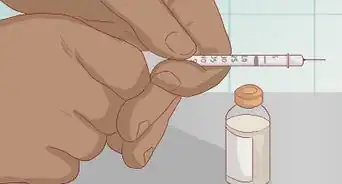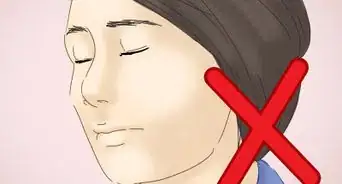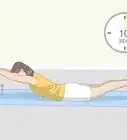This article is based on an expert interview with Margareth Pierre-Louis, MD, conducted by wikiHow Staff Editors. Dr. Margareth Pierre-Louis is a board certified Dermatologist and Dermatopathologist, Physician Entrepreneur, and the Founder of Twin Cities Dermatology Center and Equation Skin Care in Minneapolis, Minnesota. Twin Cities Dermatology Center is a comprehensive dermatology clinic treating patients of all ages through clinical dermatology, cosmetic dermatology, and telemedicine. Equation Skin Care was created to provide the best in evidence-based, natural skin care products. Dr. Pierre-Louis earned a BS in Biology and an MBA from Duke University, an MD from the University of North Carolina at Chapel Hill, completed a residency in dermatology at the University of Minnesota, and completed a dermatopathology fellowship at Washington University in St Louis. Dr. Pierre-Louis is board certified in dermatology, cutaneous surgery, and dermatopathology by the American Boards of Dermatology and Pathology.
This article has been viewed 4,945 times.
By now you know how important wearing sunscreen is to reduce your risk of skin cancer, prevent premature aging, and keep your skin at its healthiest, but how often should you reapply your sunscreen throughout the day? In this video, dermatologist Margareth Pierre-Louis breaks down the best way to time your sunscreen applications to make sure you're getting consistent protection from the sun.
Key Takeaways
- The FDA recommends reapplying sunscreen every 2 hours.
- Chemical sunscreens typically last longer than mineral sunscreens.
Video Transcript
The recommendations are, by the FDA, that you reapply most, if not all sunscreens every two hours. Now if it is a mineral sunscreen, you should definitely do that because you could sweat off the sunscreen and then it becomes ineffective. If you're in a chemical sunscreen, you could typically go a little longer between having to reapply, but on average, try to reapply sunscreen every two hours so you minimize the burning effect that can happen without sunscreen.

























































